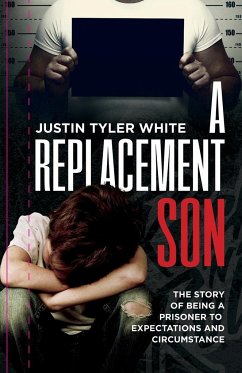
My Appalachia 1924-1942
A Story of Courage and Victory

PAYBACK Punkte
8 °P sammeln!
This is the history of how people lived and interacted with one another during a time when the struggle of man was the determinng factor in success or failure. The Government did not rescue disadvantaged people. Parents and children struggled to find a place at the top of the success ladder, hoping for self-fulfillment. Some, the meek, were held back to make room for the aggressive ones. It shows the subtle forms of control in family life, which place some smart and talented family members at the bottom of the ladder. Trial and error is the process of learning. When the opportunity to try is d...
This is the history of how people lived and interacted with one another during a time when the struggle of man was the determinng factor in success or failure. The Government did not rescue disadvantaged people. Parents and children struggled to find a place at the top of the success ladder, hoping for self-fulfillment. Some, the meek, were held back to make room for the aggressive ones. It shows the subtle forms of control in family life, which place some smart and talented family members at the bottom of the ladder. Trial and error is the process of learning. When the opportunity to try is denied, a child has little chance to grow into a normal adult. There is a big price to pay for that lack of opportunity, because it leads to yet, another dysfunctional parent. There were no evil intentions--just each person trying to find his own niche, some succeeding and some giving-up. For me it took a generation of self analysis and therapy to learn who I AM. Because of the "sins of the fathers/parents" rule for living, I passed some of my dificulties on to my beloved children. It is up to them to fight the battle and come to terms with the problem of Generational Sins.














